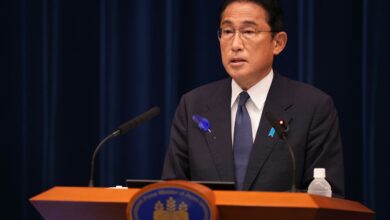Venezuela’s “interim gov’t” no model of transparency

By Sarai Coscojuela
Caracas, Jan 10 (EFE).- The self-proclaimed “interim government” led by Juan Guaido, shut down last month by a majority of the opposition lawmakers who supported its launch in January 2019, never provided a full accounting of the money received from the United States and foreign supporters, let alone how those resources were used.
Guaido, known to fewer than 20 percent of Venezuelans when he declared himself acting president, offered only one report on his administration’s financial dealings over the course of its nearly four years of existence.
The ex-legislators who backed Guaido – also no longer with a seat in the National Assembly – have given him 45 days to tell them where the money went.
They also want to see the accounts of the many entities created by the interim government, including “parallel embassies,” boards to oversee the central bank and state oil company Pdvsa, and the offices of the shadow attorney general and controller general.
“This administration has been opaque,” political consultant Giulio Cellini told EFE. “Now begins the moment for which we have been waiting so long, the detailed review of everything that has to do with the disposition of resources.”
Encouraged by Washington, then under the control of Donald Trump, Guaido cited alleged fraud in President Nicolas Maduro’s re-election in May 2018 as grounds for assuming the role of acting head of state.
More than 50 countries joined the US in recognizing Guaido as Venezuela’s president and the United Kingdom granted control of the oil-rich nation’s gold reserves – stored in London – to the interim government.
And the US Treasury Department funded the Guaido group with money from Venezuelan government accounts frozen pursuant to Washington’s sanctions against Caracas.
But the Guaido team’s efforts to induce Venezuelan security forces to abandon Maduro failed and the masses never rose up against the leftist government.
The interim government lost its purpose as a political movement and bureaucratization took hold, according to Cellini.
Guaido and his associates turned the interim government into “a way of life in which they felt comfortable, as if they were really governing, and they received resources for the maintenance of their structures,” the director of Log Consultancy said.
Last September, Guaido said that his administration had managed $227.5 million in funds to that point.
The report, however, was short on specifics, referring to expenditures on the “defense of democracy” and “diplomacy for liberty.” EFE sc/dr





